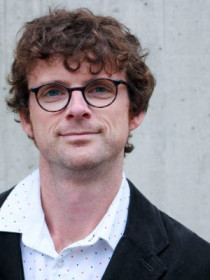Connect with Ceri
About Ceri
Hughes' research focuses on political communication and journalism studies. Overarching themes in Hughes' writings include minor party politics, religious rhetoric in politics and communication and civic renewal. Hughes is a Lecturer in Media and Communications, Media at Swansea University.
Contributions
In the News
Publications
Identifies how Donald Trump launched his presidential campaign, his candidacy was far from embraced by the Religious Right. Explains how Trump gained a higher percentage of the White Evangelical vote than any prior nominee.
Identifies how the United States, despite official separation of church and state, is a country dominated
politically by Christianity.
Discusses how county-level conditions—economic resilience, population change, and community health—intersect with individuals’ political orientations and communication patterns to shape partisan evaluations.
Discusses how the US electoral system is not kind to third parties. Details how the party operates in a narrow window of antiparty sentiment, with the emphasis on the intersection of their four core policy pillars, and party practices.
Elaborates on how the United Kingdom political landscape has historically been dominated by the two main political parties: Labour and the Conservatives.
Discusses how the 2016 vote to leave the European Union was one of the biggest developments in recent United Kingdom political history. Finds one political party was wholly united for Brexit – the United Kingdom Independence Party.
